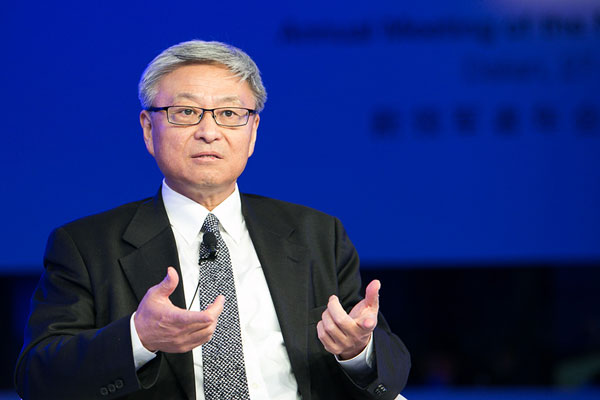
"China will work to foster an ideological environment conducive to its rise while opposing Western values" - Yan Xuetong, leading expert on CN foreign policy and the Dean of Tsinghua U's Inst of Contemporary IR, has written a new essay that you won't want to miss. A Summary:
1/15
1/15

Yan speaks for CN policymakers who believe that CN's elevated status as a great power gives it the authority to play a new role in IR, "one that cannot be reconciled" with US hegemony, as suggested by the title, "How Should We Make the Voice of CN Diplomacy Heard in the New Era?"
According to Yan, CN's either surpassed or is rapidly closing the gap with the US in a variety of areas, including the ongoing pandemic, 5G technologies, & digital currencies, per Xi: The world is in the midst of changes "unseen in a century", a rising East & a declining West. 3/
Therefore, Yan Xuetong believes that the US-led "unipolar order" is gradually disintegrating and that a new "multipolar order" will emerge in its place, "with China and the US at its core." 4/
Yan Xuetong assures that the PRC does not want to fight the US; on the contrary, China recognizes the limits of its economic and military power as a developing country – albeit the richest and strongest – and that a Cold War confrontation is not in its long-term interests. 5/
The main issue is that China saw Biden pick up where Trump left off, labelling China a "strategic competitor" and attempting to isolate and contain it in ways that jeopardize its interests, interfere in its internal affairs, hurt its dignity, and...
6/
6/
...impede its progress toward "national rejuvenation." China does not oppose multilateral rules and institutions, contrary to popular belief in the West, but "it does resent the United States establishing rules without consulting China." 7/
Yan Xuetong predicts that China's foreign policy will be influenced by its "dual identity" as a a developing major power in all dimensions in the post-pandemic era, with great power competition looming in the background. 8/
That is, CN will challenge US hegemony in areas where it has or can gain an advantage, rather than escalating the rivalry into a full-fledged Cold War. A hot war's obviously not an option unless, for example, TW declares independence, in which case CN "may have no other option"9/
In terms of the future global landscape, Yan Xuetong envisions a world order in which many multilateral organizations coexist, with some overlap and conflicting interests, rather than a Cold War-style US versus China-led bloc. /10
Countries would need to find a way to hedge their differences with the two major powers in the coming decade, as we see today with Australia and China, both members of the Regional Comprehensive Economic Partnership (RCEP) and competitors:
/11
/11
"in most cases, China and the United States will form rival clubs, and other countries will decide which club to join on a case-by-case basis."
/12
/12
In the coming decade, such conflicts may exacerbate political instability and anti-globalization trends. It's not an ideal world, "but this is preferable to hardline fragmented geopolitical blocs". A race to the 1st place, as Xi said in Davos, is preferable to a boxing match.
/13
/13
"China's post-pandemic foreign policy is just beginning to take shape. The Chinese government has always adjusted its policies to changing domestic and foreign conditions, following Deng Xiaoping's practice of "crossing the river by feeling the stones."/14
"The future is no different. However, the context for these adjustments will be a fundamentally altered global landscape in which U.S. unilateral decisions, as well as the various alliances and issue-specific coalitions it leads, will no longer be as viable as they once were"/End
The article is so jam-packed with information that it has something for everyone doing research on China, including many ideas I didn't mention in the summary. Link: guancha.cn/YanXueTong/202…
Stay tuned for a full translation of the essay.
Stay tuned for a full translation of the essay.
• • •
Missing some Tweet in this thread? You can try to
force a refresh









